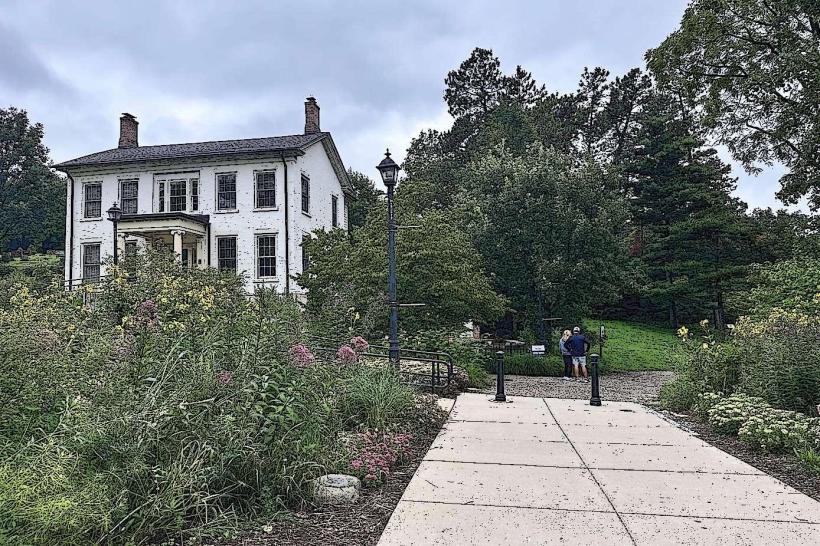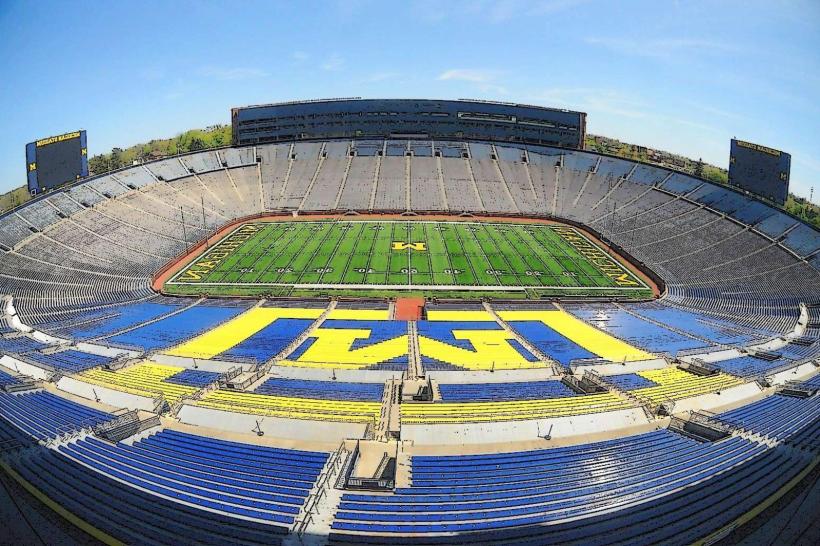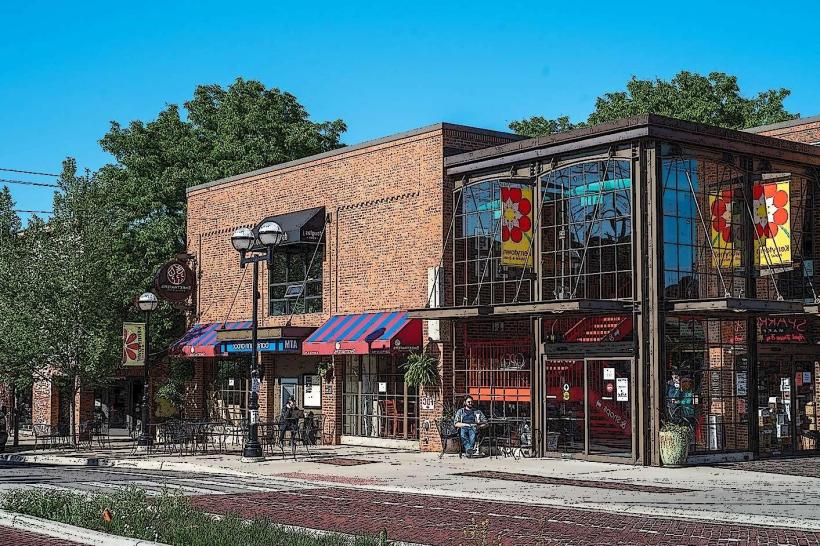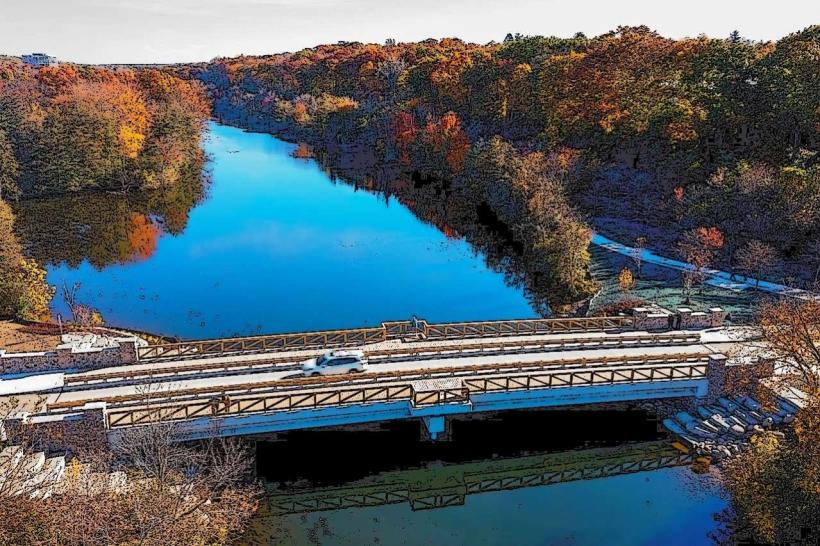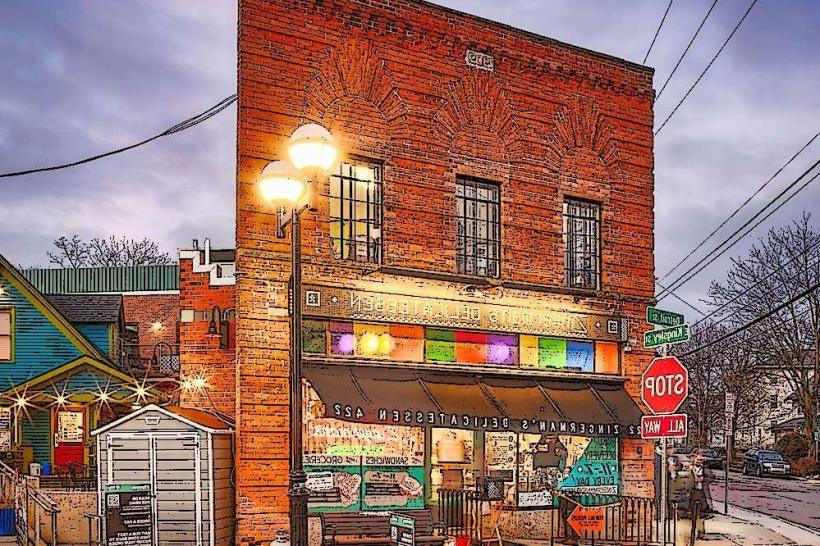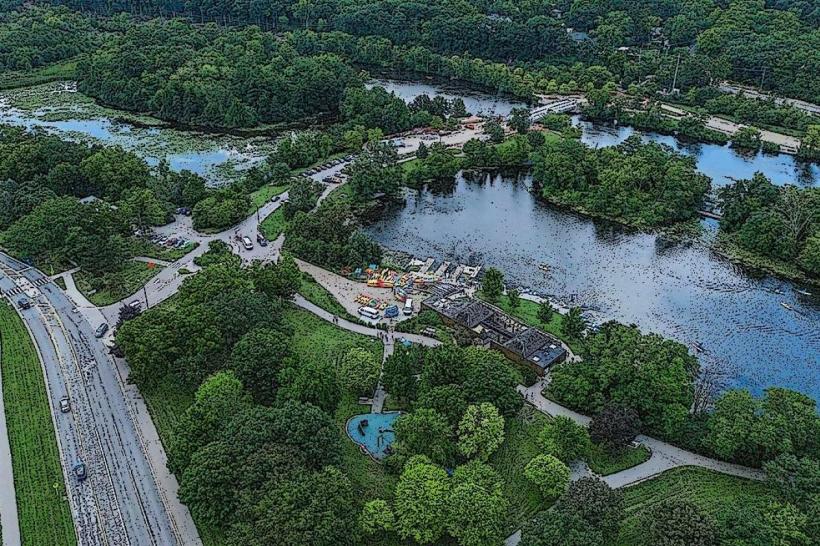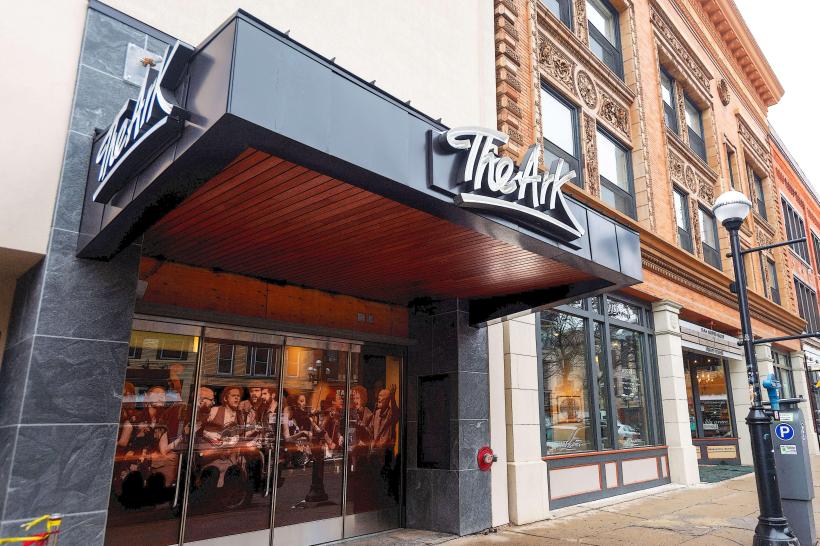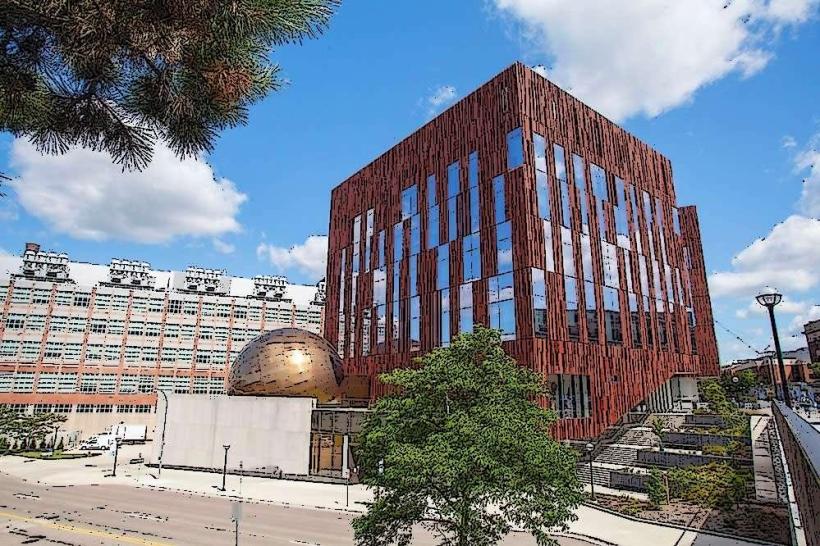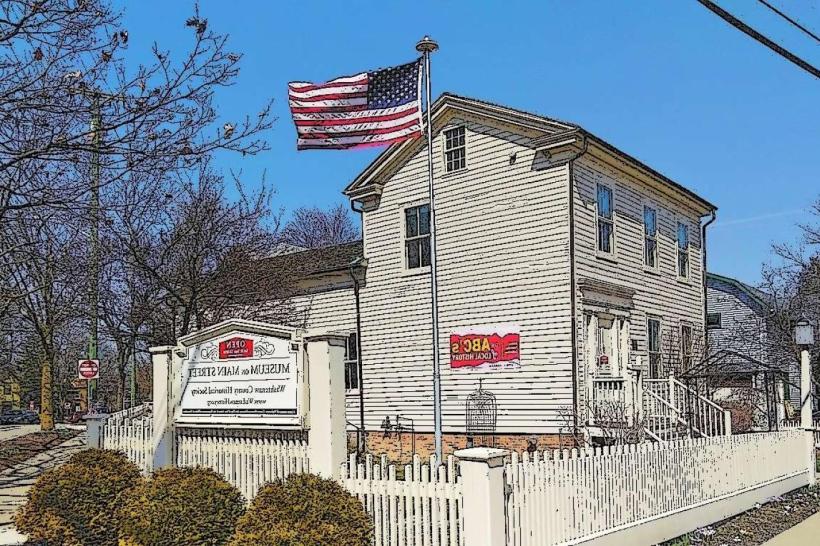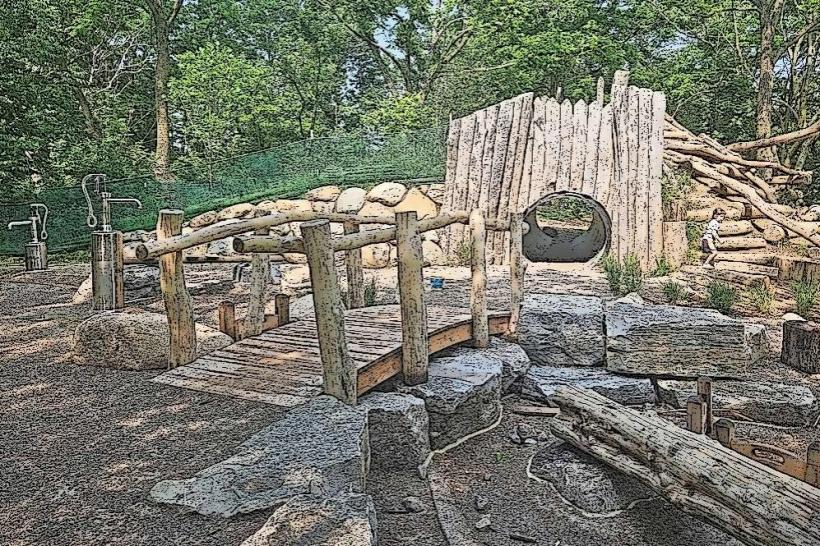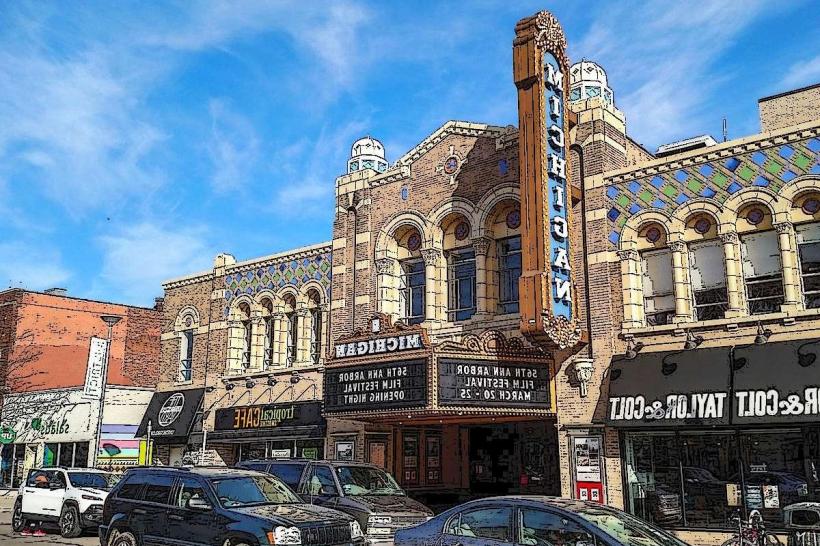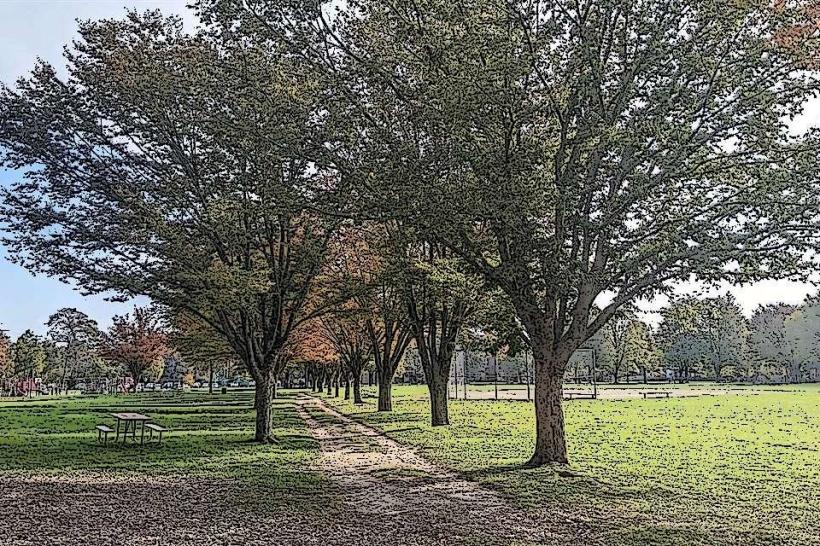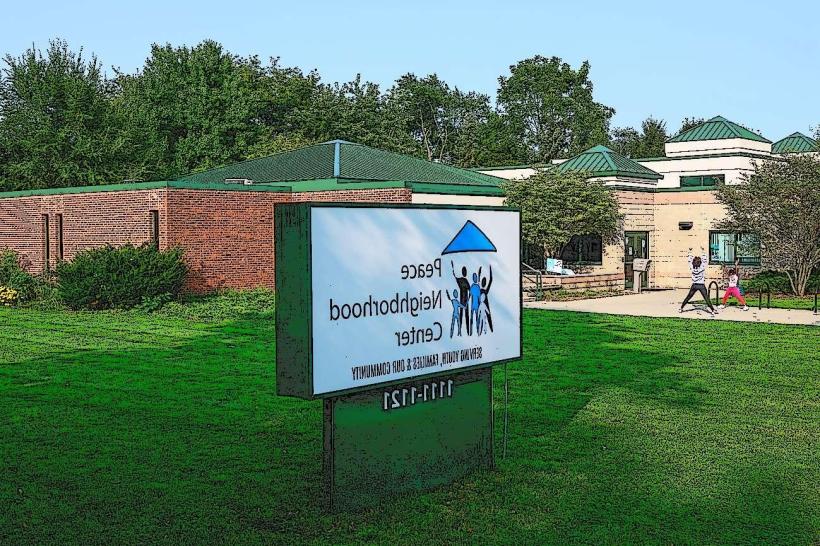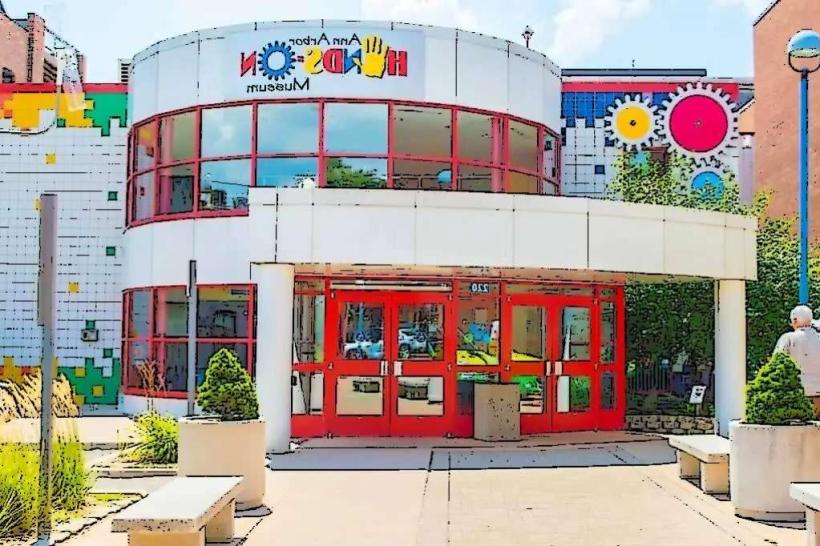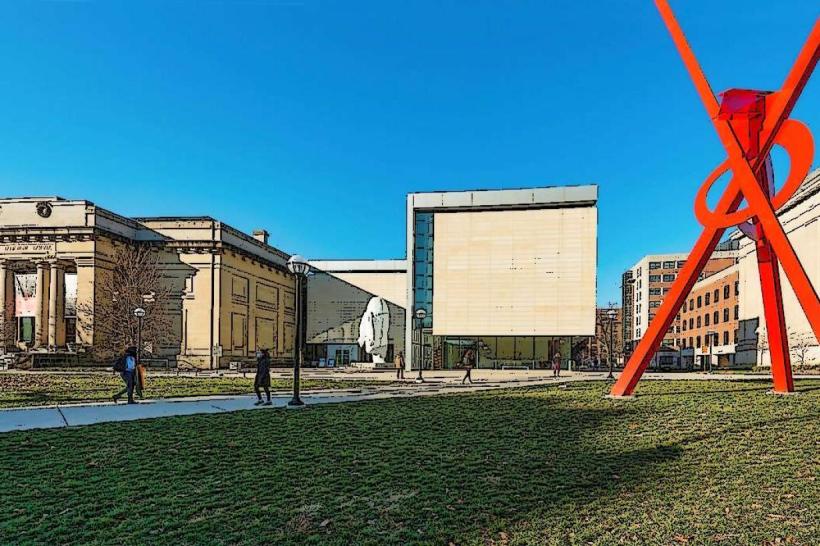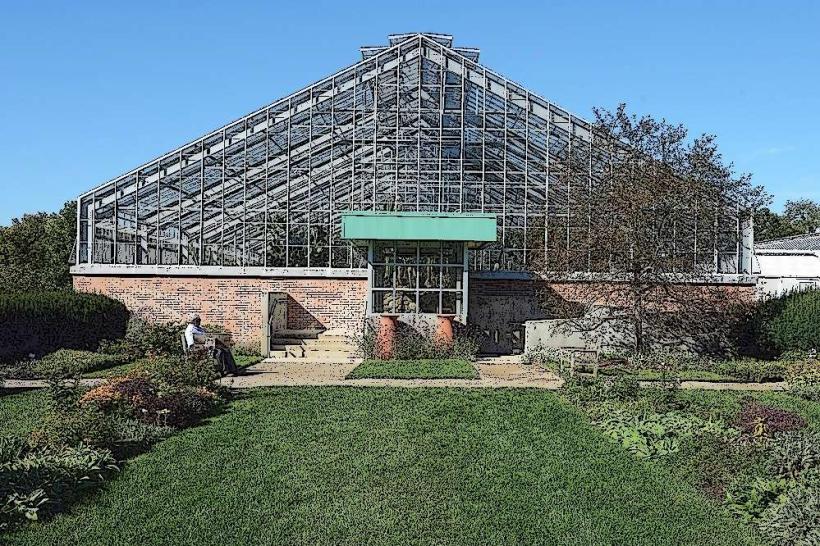Information
Landmark: Gerald R. Ford Presidential LibraryCity: Ann Arbor
Country: USA Michigan
Continent: North America
Gerald R. Ford Presidential Library, Ann Arbor, USA Michigan, North America
The Gerald R. Ford Presidential Library is a prominent research facility and museum dedicated to preserving and sharing the legacy of Gerald R. Ford, the 38th President of the United States. It is located on the University of Michigan’s North Campus in Ann Arbor, Michigan, at 1000 Beal Avenue. The library operates under the National Archives and Records Administration (NARA), which manages all U.S. presidential libraries.
Historical Context and Purpose
The Gerald R. Ford Presidential Library was established to collect, preserve, and provide access to the extensive records, papers, photographs, audio and video recordings, and artifacts related to President Ford’s life, his presidency from 1974 to 1977, and his post-presidential years. It serves as a vital resource for historians, scholars, students, and the public interested in American history, politics, and governance during the mid-1970s.
The library’s purpose goes beyond archiving: it actively promotes educational programs, public exhibitions, and scholarly research to deepen understanding of Ford’s contributions, including his role in healing the nation after the Watergate scandal, his foreign and domestic policies, and his legacy in American political history.
Location and Architecture
Situated on the University of Michigan’s North Campus, the library occupies a modern facility designed to provide a secure environment for the preservation of delicate materials, as well as public spaces for exhibitions and research. The location within an academic environment fosters collaboration with scholars and students.
The building includes climate-controlled archival storage, reading rooms, exhibit galleries, administrative offices, and spaces for public programs and educational outreach.
Collections and Archives
The Gerald R. Ford Presidential Library holds one of the most comprehensive collections related to a U.S. president, including:
Presidential Papers: Official documents, memos, speeches, correspondence, and policy files from Ford’s presidency, which reflect his decisions and administration operations.
Pre- and Post-Presidential Materials: Documents and personal papers from Ford’s political career before and after his presidency, including his time as a U.S. Congressman and Vice President.
Betty Ford’s Papers: Archives relating to Betty Ford, the First Lady, including her advocacy for women’s rights and addiction recovery.
Audio-Visual Materials: Over 3,500 hours of audio recordings and 3,500 hours of video footage, including White House press conferences, interviews, and historical footage.
Photographs and Motion Picture Film: Approximately 450,000 photographs and thousands of hours of motion picture film documenting events, official visits, and personal moments.
Oral Histories and Research Interviews: Recorded interviews with key figures and staff members from the Ford administration, providing personal perspectives on historical events.
The sheer volume of materials-over 25 million pages of documents-makes the library an essential repository for researching mid-1970s American political and social history.
Exhibits and Public Programs
The library features a range of rotating exhibits that highlight different aspects of President Ford’s life and times. These exhibits use photographs, documents, artifacts, and multimedia to present themes such as political cartoons of the era, the Vietnam War, and the Watergate scandal’s aftermath.
Past and current exhibits have included:
The President and the Cartoonist: Exploring political cartoons and their influence on public opinion during Ford’s presidency.
Casting Light: Photographs of the Vietnam War: A visual narrative showing the war’s impact through the lens of photojournalism.
In addition to exhibits, the library hosts lectures, workshops, and educational programs aimed at students, scholars, and the general public. These events provide deeper insights into presidential history and governance.
Research Services and Access
The library serves as a research center open to the public, especially students, historians, and journalists. Researchers can access the archival materials by appointment, ensuring the preservation of sensitive documents. A dedicated staff assists with navigating the extensive collections.
Reading rooms are available for in-person research, while many digital resources and catalogs are accessible online. The library emphasizes transparency and education, supporting scholarship and public knowledge.
Visitor Information
Location: 1000 Beal Avenue, Ann Arbor, Michigan, on the University of Michigan North Campus.
Hours of Operation: Open Monday through Friday from 8:45 AM to 4:45 PM. The library is closed on weekends and major federal holidays including New Year’s Day, Thanksgiving, and Christmas.
Admission: Free of charge, making it an accessible educational resource for all visitors.
Parking: Complimentary parking is available with accessible spaces close to the facility.
Accessibility: The library is fully accessible to visitors with disabilities.
Nearby Points of Interest
Ann Arbor is a vibrant college town with a rich cultural scene, and the library is conveniently located near other University of Michigan facilities. Visitors can also explore museums, theaters, and parks in the area. The city’s mix of historic charm and modern amenities provides a well-rounded experience for travelers.
Summary
The Gerald R. Ford Presidential Library in Ann Arbor is a key institution preserving the legacy of a pivotal American leader. It offers vast archival materials for research, compelling exhibits that bring history to life, and public programs that educate and inspire. Its integration within a university setting fosters academic scholarship while serving as a resource for the broader community interested in American political history and the Ford presidency.

